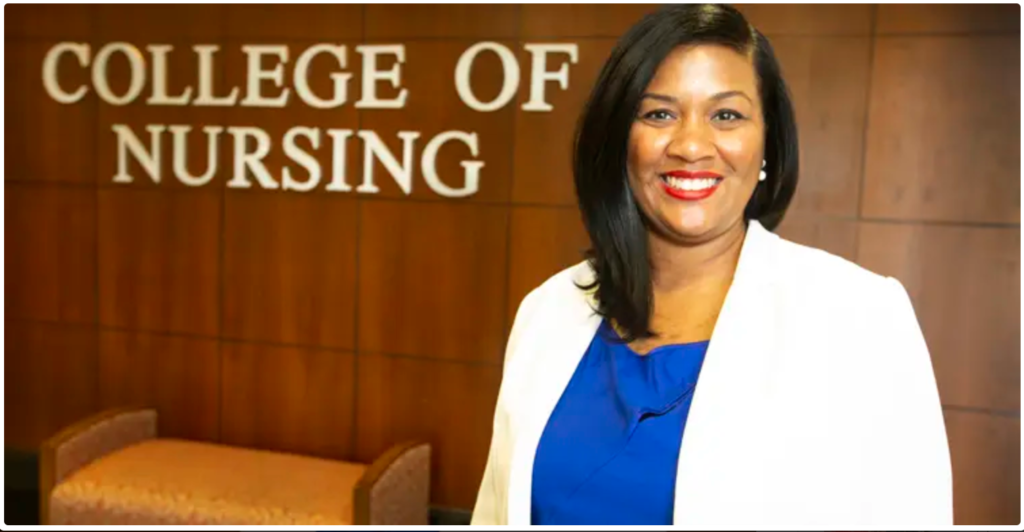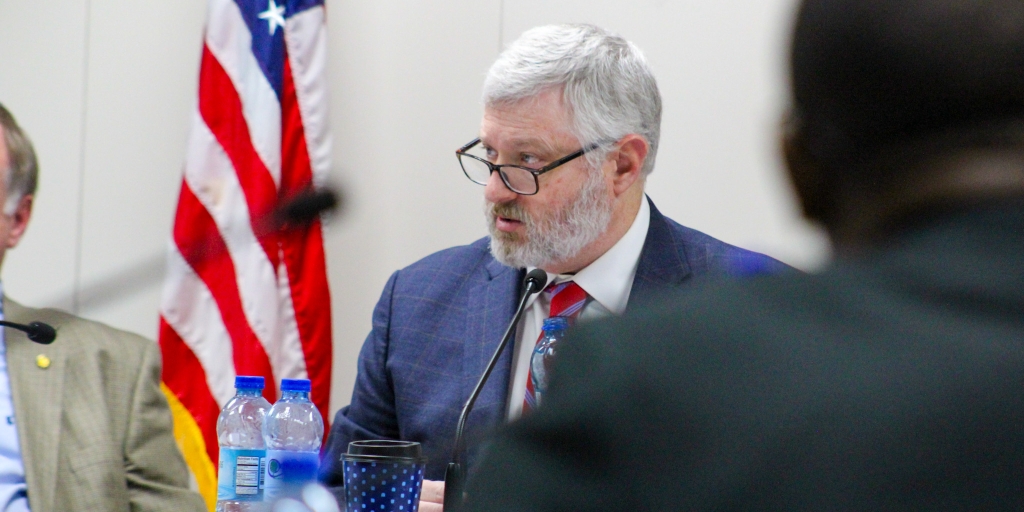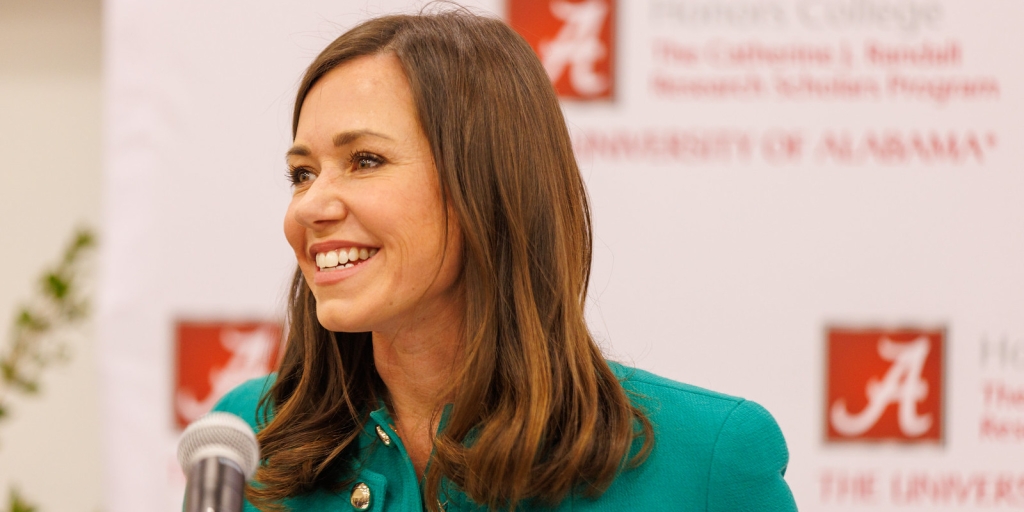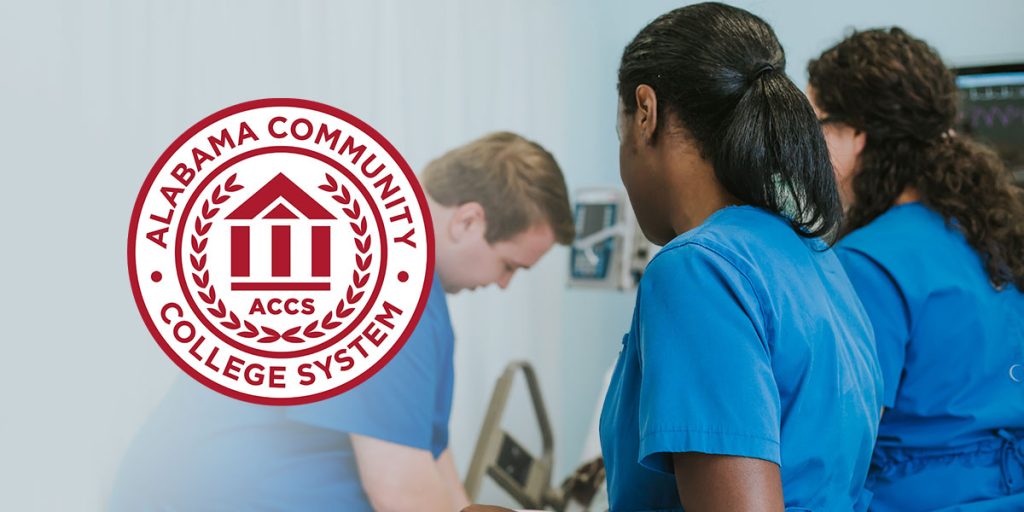Increasing the diversity of the nursing workforce is a key focus of the University of South Alabama College of Nursing, which recently received a $1.9 million federal grant from the Health Resources and Services Administration to support the advancement of diversity in the nursing field.
The grant will fund a new initiative known as the EMPOWER project, which will serve two purposes. First, it will advance USA’s goal of educating a more diverse nursing workforce. Second, it will reduce health disparities in underserved communities.
EMPOWER will concentrate on recruiting, retaining and graduating bachelor of science in nursing students of diverse and underrepresented backgrounds. This is the first time USA’s College of Nursing has received the HRSA workforce diversity grant, which focuses on educating and supporting students from disadvantaged backgrounds.
The College of Nursing EMPOWER Project Director, Dr. Shanda Scott, assistant professor and director of diversity, equity and inclusion, and Co-Project Director Dr. Christina Thompson, assistant professor of maternal child care, partnered to apply for the HRSA grant. Additional College of Nursing faculty members supporting this grant initiative are Dr. Nerkissa Dixon, assistant professor of adult health nursing, Dr. Loretta Jones, assistant professor of adult health nursing, and Dr. Dedra Reed, assistant professor of community mental health nursing.
“We are very excited to receive this significant funding to start the EMPOWER project,” Scott noted. “We plan to recruit, retain and graduate undergraduate nursing students from underrepresented backgrounds that will one day serve rural and underserved populations. We are striving to increase the number of minority students entering the nursing workforce. Understanding the needs of diverse student populations is critical for student retention through graduation.”
Research shows that to advance health equity, there’s a need to improve diversity in the nursing profession, Scott said.
“We understand that a more diverse healthcare workforce can reduce health disparities,” Scott explained. “Research has shown that by strengthening the skills and diversity of the nursing workforce, patients receive better healthcare.”
USA is one of 32 institutions of higher education nationally to be funded through this HRSA four-year award.
“I am proud of USA’s College of Nursing faculty who are leading this project to increase opportunities in nursing education for students who are from disadvantaged backgrounds, including racial and ethnic minorities,” said Dr. Heather Hall, dean of the College of Nursing. “The program will be developed to include recruitment, retention, and graduation goals that will provide a pathway for students of backgrounds underrepresented in nursing. It is vital for the nursing profession to include a more diverse nursing workforce to strengthen the understanding and awareness of the needs for individual patients.”
Under the EMPOWER project, 10 traditional BSN students will be in the first cohort. The grant funding will aid a total of 100 students over the four-year period. All grant recipients will receive a scholarship for tuition, books and fees, and a monthly stipend for personal expenses like food and gas.
“The scholarship will be paid annually, and students will receive additional funds each month from the stipend with a goal to alleviate some of their financial burden,” Scott said. “Our students must drive to attend their mandatory 8-12-hour clinical rotations located at various hospitals. Through the stipend, we are addressing these basic needs.”
It was determined by the EMPOWER project team that, in order to be successful, the initiative needs to include mentoring, peer tutoring, career, faculty and professional mentorship for each of the students in the cohort.
“As students navigate through the nursing program, they will participate in a clinical immersion experience at the USA Simulation Lab and through the community health partner, Franklin Primary Health,” Scott said. “We would like students to engage in learning experiences to enhance their knowledge regarding the care of culturally diverse and underserved patients. The students will also participate in academic success workshops to include test taking, resilience and mindfulness sessions”
The funding allows the South’s College of Nursing to receive holistic review training and a faculty mentorship plan to help with the recruiting and retention of minority faculty members.
“Increasing diversity of both students and faculty in the USA College of Nursing will prepare graduates to meet the important workforce needs,” Scott said. “The initiative’s goals align with the mission of the University’s diversity, equity and inclusion efforts.”
For more information about EMPOWER, send an email to [email protected].













